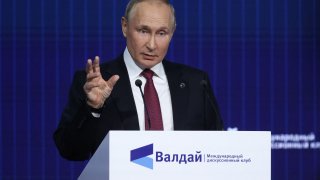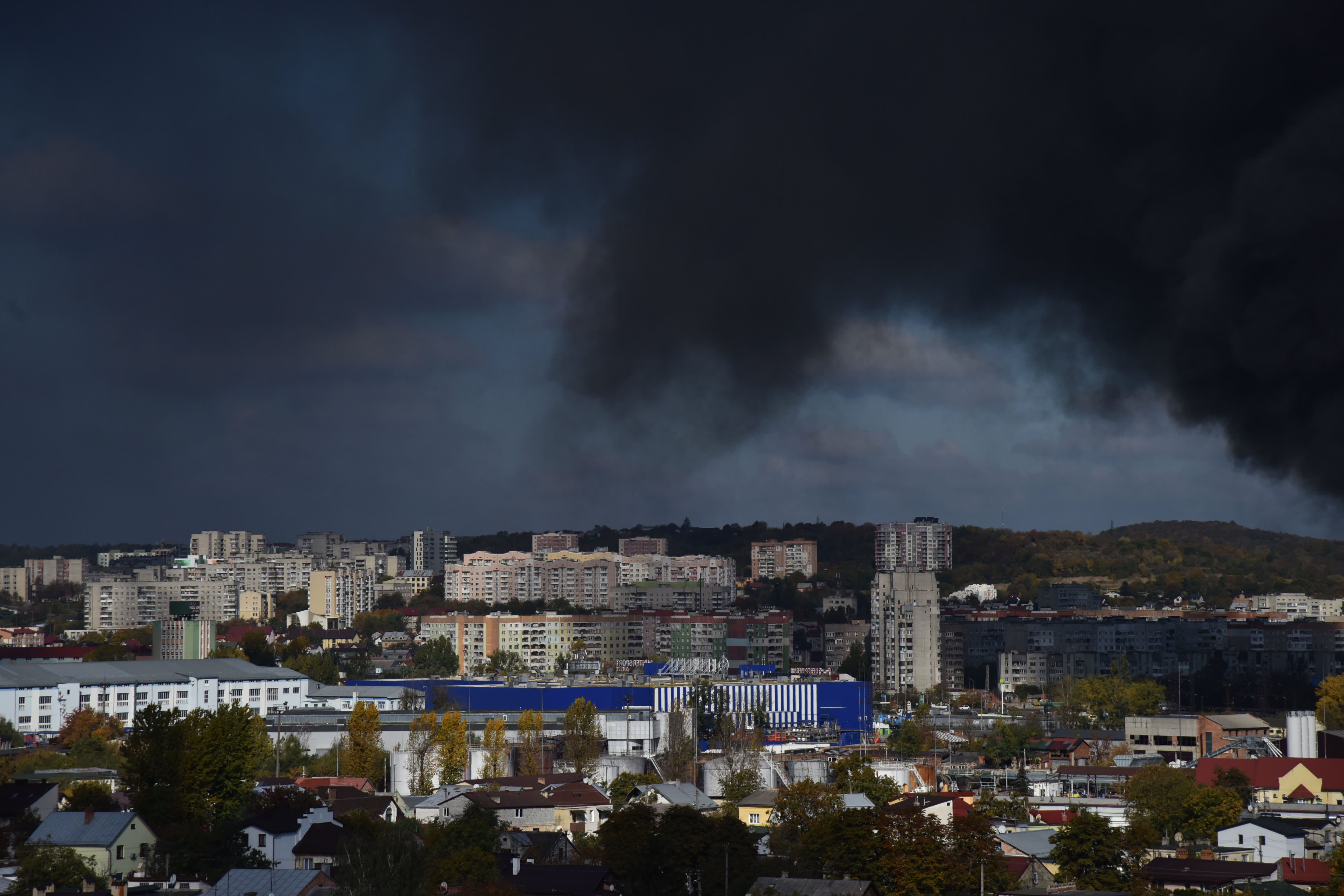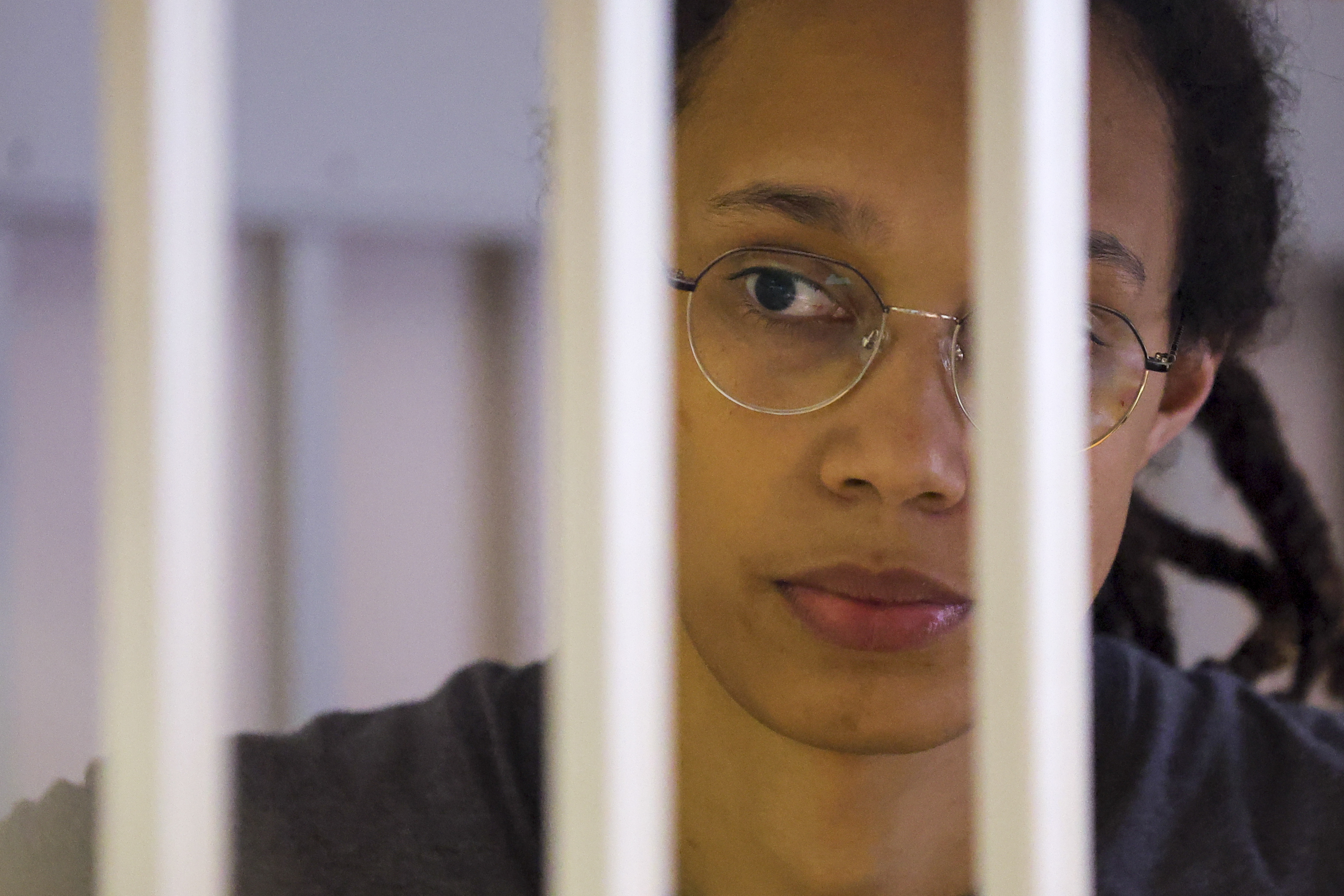
Russian President Vladimir Putin on Thursday denied having any intentions of using nuclear weapons in Ukraine but described the conflict there as part of alleged efforts by the West to secure its global domination, which he insisted are doomed to fail.
Speaking at a conference of international foreign policy experts, Putin said it's pointless for Russia to strike Ukraine with nuclear weapons.
“We see no need for that,” Putin said. “There is no point in that, neither political, nor military.”
Putin said an earlier warning of his readiness to use “all means available to protect Russia” didn’t amount to nuclear saber-rattling but was merely a response to Western statements about their possible use of nuclear weapons.
He particularly mentioned Liz Truss saying in August that she would be ready to use nuclear weapons if she became Britain's prime minister, a remark which he said worried the Kremlin.
“What were we supposed to think?” Putin said. “We saw that as a coordinated position, an attempt to blackmail us.”
Without offering evidence, the Russian leader repeated Moscow’s unproven allegation that Ukraine was plotting a false flag attack involving a radioactive dirty bomb it would try to pin on Russia.
Ukraine has strongly rejected the claim, and its Western allies have dismissed it as “transparently false.” Ukraine argued Russia might be making the unfounded allegation to serve as a cover for its own possible plot to detonate a dirty bomb.
Feeling out of the loop? We'll catch you up on the Chicago news you need to know. Sign up for the weekly> Chicago Catch-Up newsletter.
Putin said he personally ordered Russian Defense Minister Sergei Shoigu to call his foreign counterparts to tell them about the purported plot. He maintained that Russia knows the Ukrainian facilities working on the project.
Putin claimed, still without citing any proof, that Kyiv’s plan was to rig a missile with radioactive waste and to characterize its explosion as a Russian nuclear strike in an effort to isolate Russia in the global arena.
He mocked the allegations by Ukraine and the West that Russia was firing on the territory of the Zaporizhzhia Nuclear Power Plant in southern Ukraine as “ravings.” Russian troops have occupied the plant, Europe's largest, since the early days of the conflict and Moscow has accused Ukraine of continuously shelling it.
In a long speech full of diatribes against the United States and its allies, Putin accused the U.S. and its allies of trying to dictate their terms to other nations in a “dangerous, bloody and dirty” domination game.
Putin, who sent his troops into Ukraine on Feb. 24, has cast Western support for Ukraine as part of broad efforts by Washington and its allies to enforce its will upon others through what they call a rules-based world order. He argued that the world has reached a turning point, when “the West is no longer able to dictate its will to the humankind but still tries to do it, and the majority of nations no longer want to tolerate it.”
The Russian leader claimed that the Western policies will foment more chaos, adding that “he who sows the wind will reap the whirlwind.”
Putin claimed that “humankind now faces a choice: accumulate a load of problems that will inevitably crush us all or try to find solutions that may not be ideal but working and could make the world more stable and secure.”
The Russian leader said Russia isn’t the enemy of the West but will continue to oppose the purported diktat of Western neo-liberal elites, accusing them of trying to subdue Russia.
“Their goal is to make Russia more vulnerable and turn it into an instrument for fulfilling their geopolitical tasks, they have failed to achieve it and they will never succeed,” Putin said.
Putin reaffirmed his long-held claim that Russians and Ukrainians are part of a single people and again denigrated Ukraine as an “artificial state,” which received historic Russian lands from Communist rulers during the Soviet times. In a frank statement. he acknowledged that the fighting in Ukraine effectively amounts to a civil war.
Putin said he thinks “all the time” about the casualties Russia has suffered in the Ukraine conflict, but insisted that NATO's refusal to rule out prospective Ukraine's membership and Kyiv's refusal to adhere to a peace deal for its separatist conflict in the country's east has left Moscow no other choice.
He denied underestimating Ukraine's ability to fight back and insisted that his “special military operation” has proceeded as planned.
Putin also acknowledged the challenges posed by Western sanctions, but argued that Russia has proven resilient to foreign pressure and has become more united.



